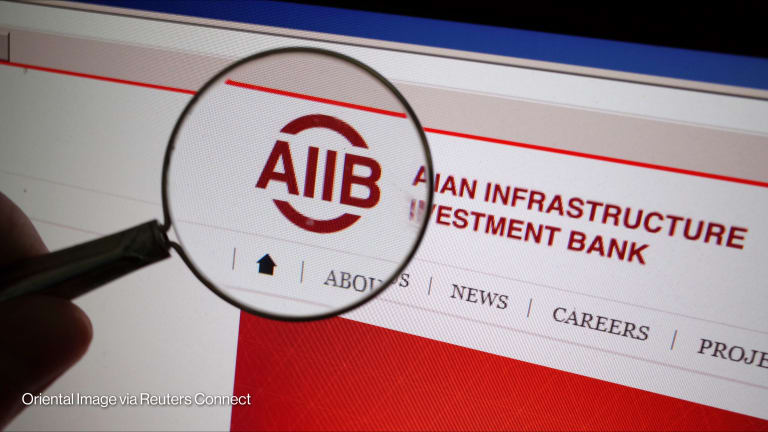
The leak has burst, names are being shamed and heads — of state and government — have begun to roll, including in Iceland and Ukraine so far. Barely a week old, the fallout from the so-called Panama Papers scandal is only likely to worsen over the near-term.
While the reckoning from the single largest financial data dump in history is still far from over, public attention has quickly shifted toward stemming the type of opaque financial networks that the papers have shed light on.
Much of that comes down to the issue of disclosing “beneficial ownership” — financial jargon that means identifying the actual human owners of otherwise anonymously held shell companies.
Efforts to uncover beneficial ownership are not new. Governments, businesses and civil society have been pushing for such disclosures for nearly as long as the practice of offshore shadow banking has existed. The Panama leaks have now provided them with renewed momentum and added urgency.
Legal but murky
Anonymously held holding companies are not inherently illegal. But their structure and secrecy can easily facilitate illegal activities that undermine development efforts. The ONE campaign — an advocacy group that works to end extreme poverty — for example, estimates that developing countries lose around $1 trillion every year to corruption or illegal cross-border deals, many of which involve shell companies with unclear ownership structures.
Those dealings can often occur unknowingly in plain sight.
“Governments around the world spend trillion of dollars in aid on contracting, yet we as citizens and often government itself don’t know if they are contracting with criminals, corrupt politicians or companies pretending to bid against themselves,” Chris Taggart, chief executive and founder of OpenCorporates, told Devex.
Taggart manages what is considered the largest open database of companies in the world — an online warehouse of information detailing the management and ownership structures of nearly 100 million companies across 110 financial jurisdictions. Free and open to the public, that information is used by journalists, banks, lawyers and anti-corruption groups to identify corporate individuals involved in potentially illicit flows of money.
More and more
OpenCorporates aggregates public information about companies, pulling together data from various streams into one common source. But Taggart says far more corporate data is needed to truly put a dent in beneficial ownership disclosures. His company is working with civil society groups focused on addressing corruption such as Transparency International, Global Witness and the ONE campaign to create what they hope will be a global registry of beneficial owners: An expanded database with more ownership information about the shell companies suspected of exploiting tax havens for illicit means.
Yet their success will depend on largely on national laws requiring public disclosure. The United Kingdom has led the way. By July, the U.K. will launch a central public archive of the beneficial owners of its registered companies.
But since shell companies typically operate under a complex web of ownership structures that span a range of jurisdictions, similar laws are needed across many more countries in order for individual national disclosure laws to be effective.
Global efforts
Denmark, the Netherlands and Norway are all currently considering similar legislation for public registries.
The United States — typically seen as lagging behind in beneficial disclosure, despite housing a significant number of the shell companies revealed in the Panama leaks — is also preparing to act.
The U.S. Treasury Department is readying executive rules that will require banks to know the identities of individuals who own 25 percent or more of corporate entities that open bank accounts.
Parallel bills were also introduced in both the U.S. House of Representatives and Senate earlier this year that would require states to maintain central registries of beneficial owners of their companies. Both bills, however, are in early stages and unlike proposed European laws, they would not require those registries to be made public.
If a critical mass of countries mandate disclosure, Taggart and other civil society groups envision a chain reaction unfolding that is similar to a social network, in which the incentives to join increase along with the costs to stay out.
For example, disclosure makes good business sense for multinational corporations, which can use beneficial ownership registries to monitor the integrity of companies in their supply chain, advocates say. “Beneficial ownership is all about mitigating risk and understanding who you’re doing business with,” said Taggart.
National efforts to publicly disclose beneficial owners have also been underway through the Extractive Industries Transparency Initiative — the premier global standard for natural resource transparency.
New rules adopted earlier this year will require all 51 participating EITI countries to identify the individual owners of their domestic mining or petroleum companies by Jan. 1, 2020. By Jan. 1, 2017 a group of 11 EITI countries who took part in a pilot program to test beneficial ownership reporting will unveil a road map, based on their experiences, which can serve as a guideline for other countries wanting to replicate their efforts.
Though EITI deals specifically with extractive industry companies, the standard’s requirement to disclose beneficial owners of “entities that bid for, operate or invest in extractive assets” is considered broad enough to hold a wide range of corporate entities accountable. And because revenues from extractive operations in developing countries are often at the heart of corrupt funds and secretive accounts, boosting transparency in that sector is seen as a major step in cleaning up financial networks more broadly.
Together, these efforts and initiatives make for what Erica Westenberg of the Natural Resource Governance Institute calls “a very exciting moment” for transparency in beneficial ownership. Conventional money-tracking technologies can trace individual account owners to connect the dots better and deter these types of financial crimes, she told Devex.
But there are still a number of significant barriers to the system. Perhaps most obvious, Taggart noted, is that people will still lie. If beneficial ownership laws produce registries of individuals who supposedly control accounts’ assets, there is no guarantee that they are actually the true owners. Which is why, he argues, a sizeable number of countries need to implement disclosure requirements in order to create tighter monitoring trails and discern more consistent patterns of account ownership.
“It’s still possible to [lie], but the difficulty of lying consistently and of finding nominees becomes greater as more registries become public,” said Taggart.
Shell companies and anonymously held accounts also typically funnel into a select number of jurisdictions. Until those particular countries take action on disclosure, true beneficial owners will remain unknown. The solution to that may come down to political will.
“Ultimately, when push comes to shove, we’re talking about countries,” Taggart contends. “You need a little bit of pressure from major the economies of the West.”
Much of the success of beneficial ownership initiatives will hinge on national legislation that will force action. But even without those laws, there appears to be growing recognition of the need to act.
Join Devex to network with peers, discover talent and forge new partnerships in international development — it’s free. Then sign up for the Devex Impact newsletter to receive cutting-edge news and analysis at the intersection of business and development.








